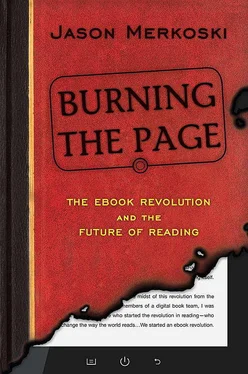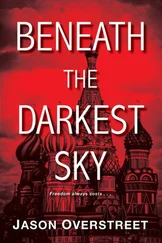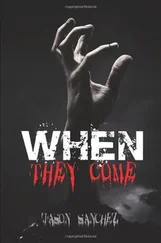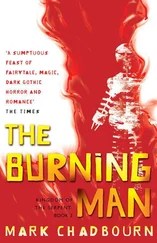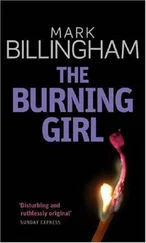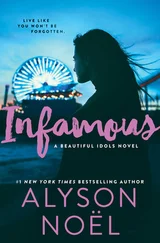At least clay tablets were given the dignity of turning into dust, but when ebooks die, it’s without a sigh. We can still archaeologically excavate former libraries and palaces in the Middle East and turn up tablets and parchment, but no one will be able to take a shovel to Apple’s data center in North Carolina thousands of years in the future and unearth all of these servers, power them up again, and recover all the ebooks they once held.
Indeed, book technology has reversed itself. Clay tablets, once durable but inconvenient, have been replaced by hard drives, which are highly convenient but very fragile. And though our words are now more widespread than ever, they barely have the lifespan of a hamster or a gerbil. They’re short-lived unless they’re constantly restored and backed up to new hard drives, to new computers. Ours is a culture that dances on the edge of ephemerality.
If our servers slept for too long or if we left our iPads unplugged for too long, we’d wake up like Rip Van Winkle to find all of our book culture erased. And in the ultimate progression, if you look at this curve of decaying durability and increasing convenience over time, the inevitable trajectory is for our words to last as long as the twenty-four-hour life of the mayfly, to be as ephemeral as a June bug’s jitter. Someday, our ephemeral but instant thoughts themselves will be beamed in a quickenth of a second from brain to brain in some ultimate evolution of print technology. But will they last beyond that fraction of an instant?
I think we’ve made a proverbial pact with the devil in digitizing our words. And digitization raises questions: since we’ve traded durability for culture, what happens if there are massive failures in our culture’s data centers? What happens if ebooks are one day wiped out? Viruses can now target nuclear power plants, so is it not conceivable that viruses could be developed to destroy ebooks?
All of our brains are alike in some fundamental ways. We can all get into a book, whether it’s in print or digital format. We can all zone out and ignore the fact that the book is on an eInk screen or is bound into pages with glue that smells like fish vomit. We can ignore these things if it’s a really entrancing book.
One of the times I enjoy reading the most is at night. I love reading in that golden hour before bed, where you’re able to put away your computer, your cell phone, anything distracting that keeps your mind unduly alert. And instead, you allow yourself to relax into a damn fine book. It doesn’t need to be a printed book; an ebook works just as well. Because as far as the brain’s concerned, the experience of reading an ebook can be the same as reading in print, in that you’re no longer aware of the medium itself—most of the time, anyway.
At night, though, when you’re trying to sleep, using LCD screens or backlit e-readers can actually zap the production of melatonin in your body, keeping you awake longer and degrading the quality of the sleep you do eventually get. Thus, I rarely read a tablet before bed, preferring an eInk reader instead.
If you’re using a glare-free e-reader that doesn’t zap you with light, reading in bed is even more of a pleasure than before. E-readers are lighter than most books, and you can annotate them without having to fumble in the dark for a pen. You’re absorbed into the book, and you can fall asleep with the ebook in your hands.
In fact, this is my test of how well a new e-reader is built. If I can fall asleep with it while I’m reading at night—feeling my eyelids growing heavy and closing with that gluey cotton-candy sensation of sleep overcoming me, feeling the e-reader slip out of my hands and onto my bed—then it worked. The ebook was able to transport me into that stuporous yet sublimely sensible state of pre-sleep, the state in which I have my best ideas, when I’m able to let go of the rational and uninhibit the intuitive. I don’t care whether you’re reading in bed or on an airplane or on a train; you can still fall asleep with a really good digital book, if you allow yourself the leisure to do so.
But that’s just me; I like reading in bed. Some people love to read with cigarettes and endless cups of coffee in a Manhattan diner. Some people love to read on their computers, endlessly following one link to the next, one website to another. Some people like to read at work between bites of their sandwiches or salads, their office doors closed during their lunch breaks, indulging in some downtime, some time for their mind, time for a book. Some people don’t like to read, but there’s no room for them in this book.
Perhaps my favorite kind of reading happens at palmy beach resorts. There’s always a stack of used paperbacks at a beach resort. With dog-eared and salt-encrusted pages brittle from exposure to the sun and scores of readers, these books are left out at night in a makeshift library, home perhaps to hermit crabs and wasps. But as e-reader costs come down, I actually expect that we’ll start seeing a bunch of left-behind e-readers instead of paperbacks at beach resorts.
Five or so years from now, you’ll be using someone’s discarded Nook or Kindle to read in a hammock in the lilac-scented wind, swinging in late-afternoon sunlight to a gentle breeze with a gentle book. Their eInk screens will be sun stained, and the saltwater won’t do them any good. The power chargers will go missing, and the wires will get frazzled and frayed. But on the plus side, you’ll be able to surf the web—albeit more slowly than you’d like on your laptop—while listening to tiki music, your stomach rumbling in anticipation of dinner and a frozen margarita.
How about you? Do you have a favorite sunny nook or diner where you prefer to read? Do you prefer reading in train stations, on airplanes, or sitting cross-legged in the aisles of an expansive, book-filled library?
http://jasonmerkoski.com/eb/2.html
The ebook revolution started in 2003 when the vice president of research for Sony spent a week trapped in an ice cave after a skiing accident. He had a broken leg and was forced to drink his own urine until he was rescued. As he stared at his cell phone, hoping for a signal, he thought, “If only I had a book about wilderness survival on a cell phone or some other device that I could pull up right away.” And that’s when the idea for Sony’s first e-reader hit him…
That’s not what happened, of course.
The origin of ebooks has more to do with technological inevitability. It’s like the story of printing itself—Johannes Gutenberg was in the right place at the right time and knew enough about minting and metallurgy to make it happen. The founders of the ebook revolution were also each in the right place at the right time.
And because the creation of ebooks involved technology, there’s no one origin story, no pat answer for how they came to be. Like all stories, that of the ebook revolution has as many twisted roots and beginnings as there are people who were part of the story.
You could, for example, trace the roots to the invention of electrophoretic ink. Xerox discovered eInk in the late 1970s but then mothballed their invention when they couldn’t figure out how to sell it. In the late 1990s, pioneers in Cambridge, Massachusetts, rediscovered eInk and improved it, and it’s partly due to their efforts that we have ebooks now.
Even before the dot-com boom got underway, there were predictions that eInk would be commercially ready as early as 2003, and anyone could have been the first to launch an e-reader. But Sony was in the right place at the right time.
Like most companies that sell consumer electronics, Sony has to invent a major new product every year to stay competitive, and eInk technology had matured to such a point by 2003 that Sony decided to use it to manufacture an e-reader. Insiders at Sony have told me that the ebook team’s budget was tiny compared to the budget for Sony’s TV division. In fact, the ebook team had to salvage parts from the Sony Walkman to make the first Sony e-reader. So even if the eInk technology was mature, the Sony e-reader was expensive and only available to the top echelon of the reading population in Japan, where it was first released.
Читать дальше
